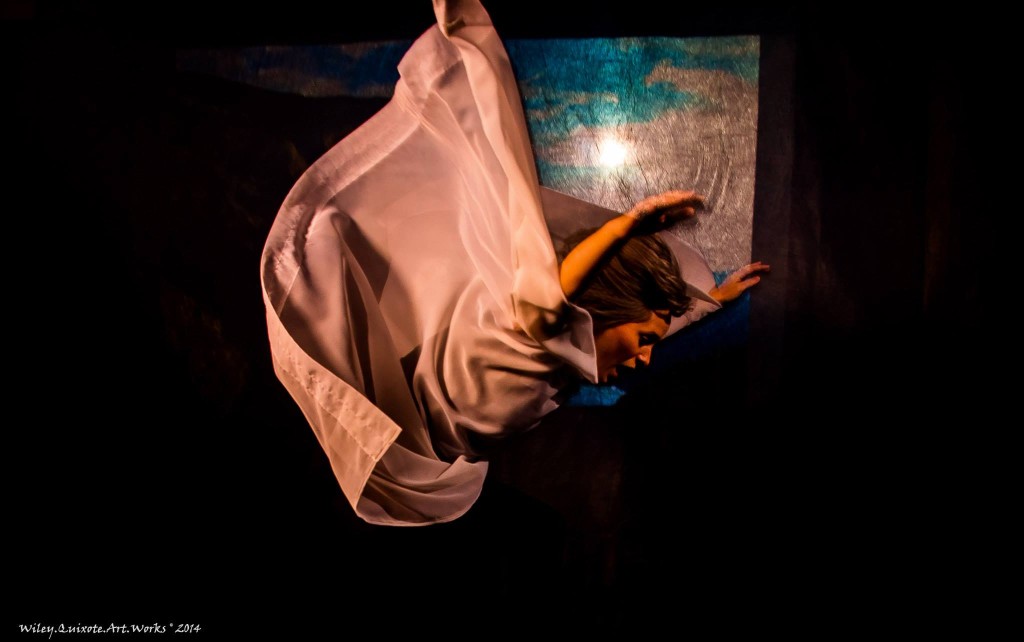It must have been while my husband scrubbed the blood from his father’s truck that he forgot how to smile. My husband had traveled through life merrily until the spring of his nineteenth year, when his father leaned into a rifle and pulled the trigger. For years I had wished that my father could have died that quickly.
Approaching the second anniversary of my father’s death, I allow myself one evening to remember him. This is a mistake: the pain that rises in my sternum reminds me of a wave that took my feet out from under me when I was a little girl playing in the ocean. Our mother had warned us of the strong undertow, and so my sister and I had ventured into the frigid swells clinging to my father’s knotted biceps, bobbing carelessly in the surf, certain we were safely anchored.
I had let go of my father’s arm for the walk back in from waist-deep water to the beach where my mother waited, hers the one face in that crowd of strangers that belonged to me. The cold waves that licked my backside as I made my way to shore were strong enough to push my slight torso forward, sending me rocking onto my toes, hands slapping against the surface of the water to stay upright. The wave that dragged me under took me so quickly I was upside down and caught in the pull of something beyond my control before my brain registered panic.
Now, sitting in my living room, a grown woman, I remember the taste of the ocean water as tears streak down my cheeks. My husband, who is trying to sleep in the adjoining room, doesn’t know how to cry anymore than he knows how to smile, so I hold my breath and swallow my sobs.
When someone you love dies and all you have left are memories, you must choose carefully which doors to unlock. Become careless and you will unlock the door that leads to the darkest room, the one where you have crammed monsters into corners, chained them to the floor, willed them to obedience, gagged and silenced them.
Children lose parents every day: accidents, illness, abandonment. Suicide is not an acceptable avenue of departure from this earth, save perhaps for the terminally ill. So if your father points a gun at himself and pulls the trigger, or pours poison down his throat until his liver quits, you mourn your loss quietly and with a sense of shame – you are your father’s son, and you are your father’s daughter, are you not?
My nerves are scraped raw from spending my childhood crouched in fear, waiting, knowing most days would be bad ones. A plate thrown, a door broken, a job lost, the purple shadow of my father’s fingertips decorating my mother’s arm. It’s not that I learned not to hope; I simply never learned hope to begin with.
When the ocean finally released me on that summer day so many years ago, I struggled out of the ocean and kept moving forward until I reached dry sand. I’d known enough to hold my breath while under water, and as I kneeled in the warm sand I gulped air into my empty lungs.
Nearly three decades later, I am still prone to holding my breath when I sense danger. But I have learned that hope is not a gift that I must wait for someone to give me – it is something I can make on my own.
Amanda Abbie Meader was born and raised in Maine, where she returned to practice law after graduating from Cornell Law School in 2004. By day Amanda is a staff attorney for a non-profit organization; by night she is the wife of a very patient man and the mother of two ridiculously spoiled Boston Terriers. Reading and writing infuse her with peace and energy in a way that nothing else can, and she is constantly dreaming up ways to devote more of each day to pursuing her true passion.


Pingback: Contributors, Spring 2014 | Rkvry Quarterly Literary Journal